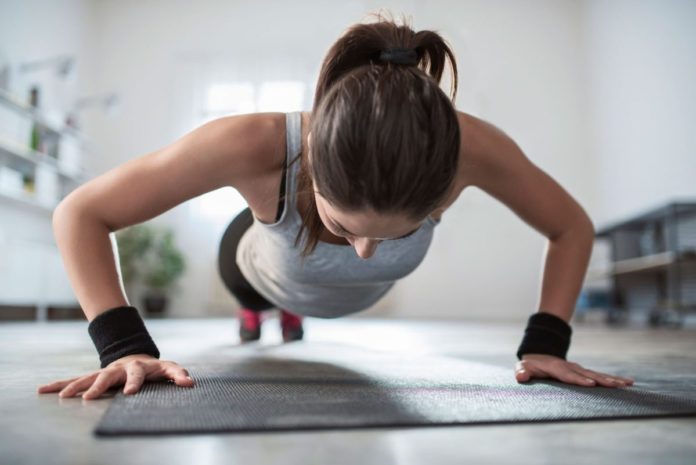As people are advised to follow social distancing, panic, and anxiety levels rise. It eventually hinders to keep up with their daily life matters. Medical experts encourage people to do the exercise at least once a day and it will improve their immune system hence, prevent from COVID-19.
Some people think that doing exercise during this lockdown is not possible or they cant do exercise hence they are more exposed to COVID-19. But researchers say that exercise is good for the human immune system and keeps a person healthy and strong.
Studies show that exercise is the best way to be active and to prevent respiratory tract infections but it is extremely hard for less active people to do the same. That is why they are more likely to get respiratory infections than healthier individuals. Another research also explains the myths regarding immuno-suppression caused by exercise, confirming that exercise has clear benefits for immunity.
Read more-The New Study finds a New Biomarker in Blood for Early Detection of Alzheimer’s disease
There are three lines of defense at a basic level and exercise keeps up the normal function of all of these lines of defense.
The first line of defense included physical obstructions such as skin that prevents the pathogens from entering the body. Research shows that skin wound recuperating is quicker in individuals who exercise consistently as compared to inactive individuals. Quicker wound healing lessens the risk of the microscopic organism like viruses and bacteria and their entry inactive individuals.
The second line of defense is comprised of innate or natural immunity which is made of cells like neutral killer cells and neutrophils. Neutral killer cells are the primary resistant cells to respond to infections. Exercise profoundly affects these cells.
The third line of defense is adaptive or memory immunity, which involved cells called T and B lymphocytes. Exercise affects these cells. It has been indicated that long-lasting standard exercise may help keep up healthy numbers of T lymphocytes, which may enable the immune system to more readily recognize pathogens and malignancy in older age.
But throughout the previous four decades, it’s been believed that strenuous, delayed exercise, for example, long-distance race or ultra-long distance race running temporarily stifles immune capacity prompting an “open-window” whereby infection risk is increased. But there’s very little proof to support this open window theory.
To check immune functions, researchers have studied vaccine response in many studies. Vaccines are probably the most ideal approaches to perceive how the immune system functions since it tests the combined ability of a wide range of immune cells to create antibodies.
Research administrating vaccines after both delayed exercise and long-distance race running shows that antibody reactions are not stifled. There’s even proof that first-class competitors who train consistently have higher antibody responses to vaccinations than the individuals who don’t exercise.
These findings strengthen the current direction about limiting travel, social distancing, and exercising at home, if conceivable. Standard moderate-intensity aerobic exercise like jogging or walking is useful to keep up the immune function normal and strong. This type of exercise should be done for 150 minutes a week. Also, aerobic exercise like cycling or running is beneficial for a strong immune system.
Read more-The New Study Finds an Association of Alcohol Use Disorder (AUD) and Suicide Risk
Similarly, resistance exercise like weightlifting is beneficial to alleviate psychological distress and to reduce the risk of chronic diseases.
In the present circumstances, exercise is mandatory to take yourself out of anxiety and depression and to live a healthy life. In addition to regular exercise, one should also pay attention to a good night’s sleep for giving the body its most obvious opportunity to fight against infections.




